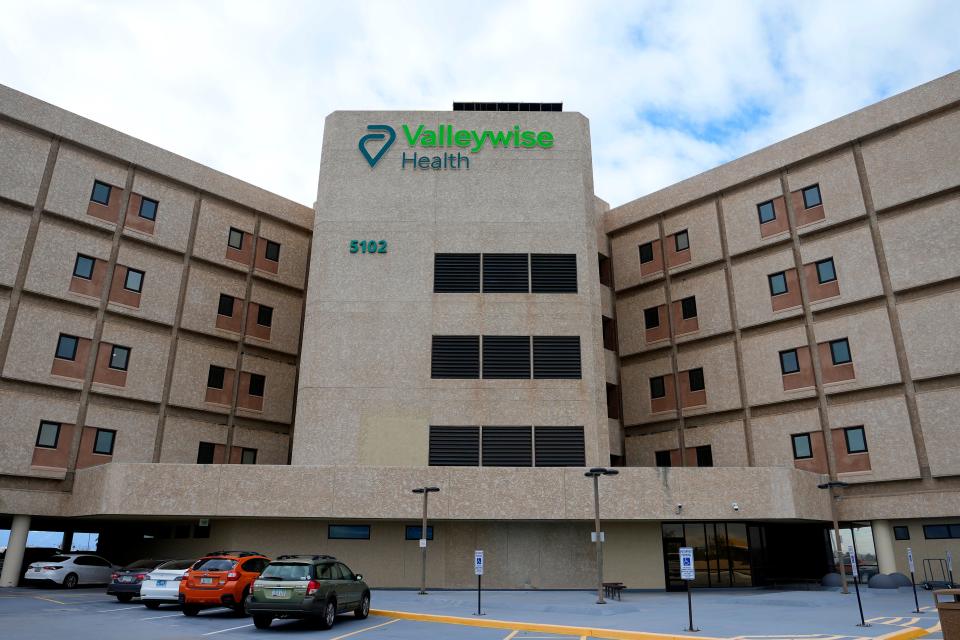Serious mental illness often emerges in young adulthood. Here's how to get help
While one in five Americans are experiencing some kind of mental illness, a smaller percentage of the population has a mental health problem that's so severe it interferes with the ability to go to school, find employment and maintain social support.
Serious mental illness, often referred to as SMI, affects about 5% of the population. That works out to approximately 17 million Americans and an estimated 383,000 Arizonans.
The National Institute of Mental Health defines an SMI as a mental, behavioral, or emotional disorder resulting in serious functional impairment, "which substantially interferes with or limits one or more major life activities."
Common forms of serious mental illness include a diagnosis of psychotic disorders such as schizophrenia, bipolar disorder and either major depression with psychotic symptoms or treatment-resistant depression.
Symptoms of schizophrenia and other brain health problems
Schizophrenia, which affects approximately 1% of the population, often emerges during young adulthood. In men, schizophrenia symptoms typically start in the early to mid-20s. In women, symptoms typically begin in the late 20s.
It's uncommon for children to be diagnosed with schizophrenia and rare for those older than age 45, according to The Mayo Clinic. Signs and symptoms may vary but usually involve delusions, hallucinations or disorganized speech and reflect an impaired ability to function.

The National Alliance on Mental Illness says 50% of all lifetime mental illness begins by the age of 14 and 75% begins by the age of 24. Mental health experts say early intervention is critical, particularly when it comes to symptoms of psychosis.
Diagnosing mental illness is not always straightforward, but the National Alliance on Mental Illness says some of the common signs may include:
Feeling very sad or withdrawn for more than two weeks.
Severe, out-of-control, risk-taking behavior that causes harm to one's self or others.
A sudden overwhelming fear for no reason, sometimes with a racing heart, physical discomfort or difficulty breathing.
Significant weight loss or gain.
Seeing, hearing or believing things that aren’t real.
Extreme difficulty concentrating or staying still.
Intense worries or fears that get in the way of daily activities.
Where to get help in Arizona
Crisis lines are available for anyone experiencing mental health-related distress, whether that is thoughts of suicide, a mental health or substance use crisis or any other kind of emotional distress.
A crisis line is different from 911 in that 911 focuses on dispatching emergency medical services, or fire or police departments as needed, often in cases of imminent danger.
There's a statewide mental health crisis line available at 844-534-HOPE (4673). The new line began operating on Oct. 1 to replace three different numbers that respectively had served the northern, central, and southern regions of the state. Trained crisis specialists are available 24/7, all days of the year, at the new number. Assistance is also available around the clock by texting “hope” to 4HOPE (4673).
More: Psychosis first appeared just as her life in Arizona was taking off. How one young woman found help
Another resource for Arizonans to get 24/7 help that's easier to remember is to dial 988. The 988 Suicide and Crisis Lifeline in July replaced the National Suicide Prevention Lifeline (800-273-TALK), although 800-273-TALK remains active.
If someone calls 988 in Arizona and does not have an Arizona area code, however, there may be an extra step involved. For the time being, calls will be routed to the closest center based upon the area code of the cellphone being used, federal officials say.
Texting 988 will work, but texts, for now, are expected to go through the centralized system and not to local crisis centers. The same is true for the chat option: https://988lifeline.org/chat/.
Individuals have the option to dial 988 and then hit 1, which will transfer to a crisis line for veterans.
There are 24/7 centers throughout Arizona where individuals can go if they are in a mental health crisis. The Arizona Health Care Cost Containment system has information here: https://www.azahcccs.gov/BehavioralHealth/CrisisStabilizationCenters.html
Early psychosis intervention in Arizona
At least three programs in Arizona provide early intervention for teens and young adults who have recently experienced an episode of psychosis. The programs have diagnostic criteria for treatment such as a diagnosis of a first episode of psychosis due to a primary psychotic disorder like schizophrenia or schizophreniform disorder, which is sometimes a precursor to schizophrenia.
The programs include:
The Valleywise Health First Episode Center in Avondale is generally for patients between the ages of 15 and 25, though it does have some patients older than 25. The clinic's phone number is 623-344-6800. The number for scheduling appointments at Valleywise Health is 833-VLLWSE (833-855-9973). Valleywise Health is planning to open a second First Episode Center in Mesa as soon as May 2023.
Keep reading: 'I've got the space and I can't use it': Why psychiatric beds in Phoenix area remain empty
Resilient Health has a first episode program in Phoenix for people ages 15 to 30. For information, call 877-779-2470 or email fepreferrals@rhaz.org
The University of Arizona and Banner Health have a first episode center called the EPICenter in Tucson for people between the ages of 15 and 35. For more information about the program and intake referrals, contact Susan Thomas at 520-694-1768 or Susan.Thomas1@bannerhealth.com
Reach health reporter Stephanie Innes at Stephanie.Innes@gannett.com or at 602-444-8369. Follow her on Twitter @stephanieinnes.
This article originally appeared on Arizona Republic: Resources for young people in Arizona having a mental health crisis

